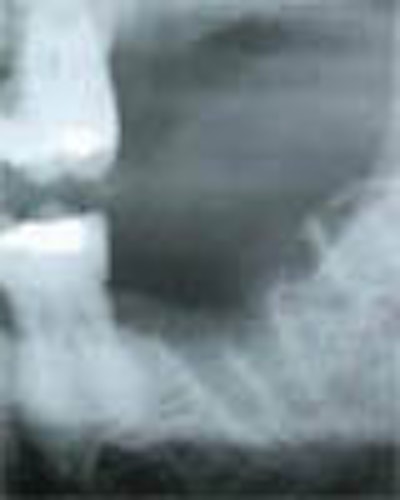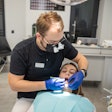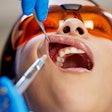
Taking bisphosphonates for osteoporosis can be like rain on your wedding day. Although bisphosphonate drugs are great at battling osteoporosis, they can also cause the rare, but serious condition of osteonecrosis, where loss of blood supply to the bone causes it to collapse. Or so claim a spate of studies including a latest one in the Journal of Rheumatology.
Bisphosphonate-related osteonecrosis of the jaw (BRONJ), for example, is a relatively new condition triggered mainly by the increased use of bisphosphonate drugs. "Basically, bisphosphonates do their job by suppressing bone turnover. Unfortunately, bisphosphonates can suppress bone turnover a little too much, resulting in long-term interference with the osteoclasts -- large multinucleated cells that can resorb bone and bring calcium into the system -- and their bone-building capabilities," reported Shalmali Pal, in a 2007 DrBicuspid article.
However, a recent JADA study by the Harvard School of Dental Medicine found that while intravenous bisphosphonates can indeed trigger jaw osteonecrosis, oral intake reduces that risk.
But the Journal of Rheumatology study, conducted by the University of British Columbia and Vancouver Coastal Health Research Institute, has found evidence to the contrary. Researchers conclude that taking some oral osteoporosis drugs -- Actonel, Didrocal and Fosamax -- nearly triples the risk of developing osteonecrosis.
Although the osteonecrosis side-effect is rare, the use of the bisphosphonates is very common,” said principal investigator Dr. Mahyar Etminan of the Centre for Clinical Epidemiology and Evaluation at UBC and VCHRI in a press release. “People taking bisphosphonates are now hearing about the potential side-effects, and this study result will permit physicians to better inform them what the order of magnitude of the risk may be.”
This epidemiological study is based on the health records of 88,000 Quebec residents from 1996 to 2003, and was initiated after research showed a link between BRONJ and the use of bisphosphonates.
Dr. Etminan has written a letter to JADA questioning the design and results of the Harvard study in light of these findings.
"We believe that the protective effect of oral bisphosphonates and osteonecrosis of the jaw (ONJ) seen in the study is a spurious finding that is contrary to other research," he writes. "We have recently shown, although not specific to jaw necrosis, that these drugs may indeed increase the risk of bone necrosis."
The ADA for its part acknowledges the link between BRONJ and bisphosphonates and offers a list of instructions to dentists on managing this condition.
"It is important to understand that, based on the information currently available; the risk for developing BRONJ is much higher for cancer patients on i.v. bisphosphonate therapy than the risk for patients on oral bisphosphonate therapy," claims the ADA site. And even though, "the risk of developing BRONJ in patients on oral bisphosphonate therapy appears to be very low, currently millions of patients take these drugs."



















